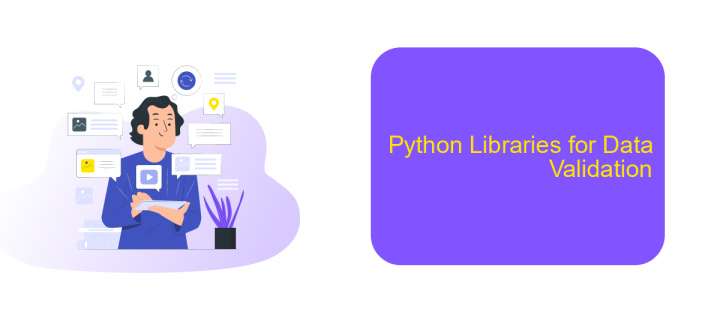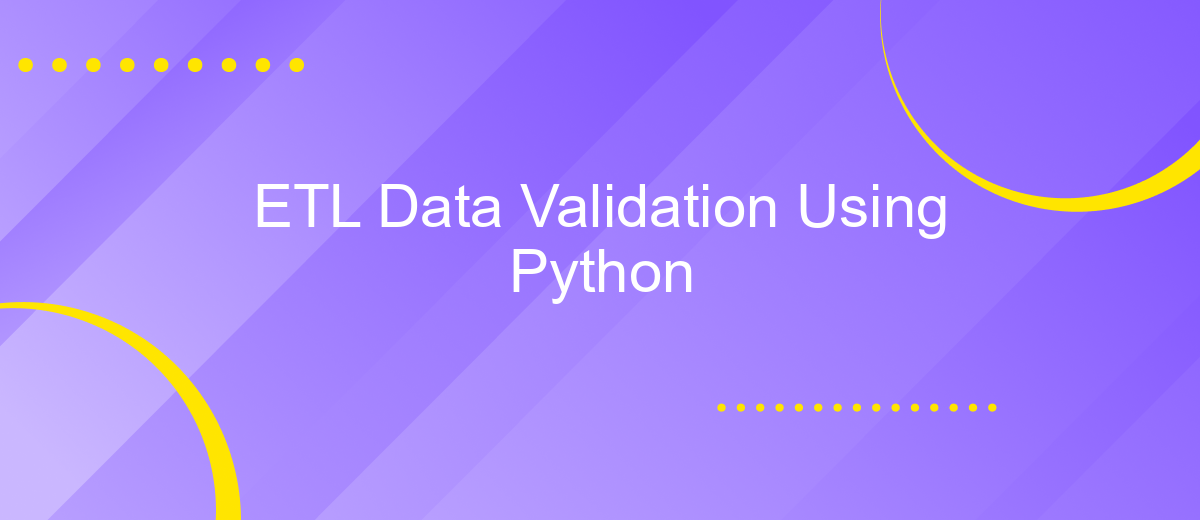ETL Data Validation Using Python
In the realm of data management, ensuring the accuracy and integrity of data is paramount. ETL (Extract, Transform, Load) processes play a crucial role in data integration, but they also introduce the risk of errors. This article explores how Python can be effectively utilized for ETL data validation, providing robust techniques to maintain data quality and reliability throughout the ETL pipeline.
ETL Data Validation Using Python
ETL data validation is a crucial step in ensuring the accuracy and reliability of data as it moves from source to destination. Python, with its extensive libraries and frameworks, provides powerful tools for implementing ETL data validation efficiently. By leveraging Python, you can automate the validation process, reducing manual errors and ensuring data integrity.
- Use Pandas for data manipulation and validation checks.
- Leverage SQLAlchemy for database interactions and validation queries.
- Implement unit tests with PyTest to ensure validation logic correctness.
- Utilize ApiX-Drive for seamless integration and data synchronization between various platforms.
By integrating these tools, you can create a robust ETL pipeline that not only transforms data but also validates it at each step. ApiX-Drive simplifies the integration process, allowing you to connect different data sources effortlessly, ensuring that your ETL process is both efficient and reliable. This approach ensures that your data is clean, accurate, and ready for analysis.
Introduction

ETL (Extract, Transform, Load) processes are fundamental to modern data management, enabling the seamless integration and transformation of data from various sources into a centralized repository. As organizations increasingly rely on data-driven decision-making, ensuring the accuracy and reliability of this data becomes paramount. Data validation is a critical step in the ETL pipeline, aimed at verifying the integrity, consistency, and quality of data before it is loaded into the target system.
Python, with its robust libraries and frameworks, offers powerful tools for implementing ETL data validation processes. Utilizing services like ApiX-Drive can further streamline these processes by automating data integration and synchronization between diverse systems. This not only enhances efficiency but also reduces the risk of errors. In this article, we will explore various techniques and best practices for performing ETL data validation using Python, ensuring that your data remains accurate and trustworthy throughout its lifecycle.
Data Validation Techniques

Data validation is a crucial step in the ETL (Extract, Transform, Load) process to ensure data accuracy, consistency, and reliability. By implementing effective data validation techniques, you can identify and correct errors early, preventing issues downstream.
- Schema Validation: Ensure that the data conforms to the expected schema, including data types, field lengths, and formats.
- Range Checking: Verify that numerical values fall within acceptable ranges and that dates are valid and within expected timeframes.
- Uniqueness Constraints: Check for duplicate records to maintain data integrity, especially for primary keys and unique identifiers.
- Referential Integrity: Validate that foreign keys correctly reference primary keys in related tables, ensuring relational database consistency.
- Data Type Validation: Confirm that the data types match the expected types, such as integers, strings, or dates, to avoid type-related errors.
For seamless integration and automated data validation, consider using services like ApiX-Drive. ApiX-Drive helps set up integrations between various data sources and destinations, enabling automated data validation checks as data flows through the ETL pipeline. By leveraging such tools, you can enhance the efficiency and reliability of your data validation processes.
Python Libraries for Data Validation

Data validation is a crucial step in the ETL process to ensure the quality and accuracy of data being transferred. Python offers a variety of libraries that can be utilized for effective data validation, making it easier for data engineers and analysts to maintain data integrity.
One of the most popular libraries for data validation in Python is Pandas, which provides powerful data manipulation capabilities along with built-in validation functions. Another useful library is Cerberus, a lightweight and extensible schema validation tool that can handle complex data validation tasks efficiently.
- Pandas: Offers robust data manipulation and validation features.
- Cerberus: Provides flexible schema validation for complex data structures.
- Great Expectations: Enables the creation of expectations to validate, document, and profile data.
- Voluptuous: A simple data validation library that is easy to use and extend.
For integrating these libraries into your ETL pipeline, services like ApiX-Drive can be very helpful. ApiX-Drive allows seamless integration of various applications and services, ensuring that your data validation processes are automated and efficient. By leveraging these Python libraries and integration services, you can significantly improve the reliability and accuracy of your data.
Conclusion
In conclusion, implementing ETL data validation using Python significantly enhances the accuracy and reliability of data pipelines. By leveraging Python's robust libraries such as Pandas and PySpark, data engineers can efficiently validate, clean, and transform data, ensuring that only high-quality data is loaded into the target systems. This process not only improves decision-making but also reduces the risk of errors and inconsistencies in data analytics and reporting.
Furthermore, integrating services like ApiX-Drive can streamline the setup and management of these ETL processes. ApiX-Drive offers a user-friendly interface and powerful automation tools that simplify the integration of various data sources and destinations. By combining Python-based ETL validation with ApiX-Drive's capabilities, organizations can achieve a seamless and efficient data workflow, ultimately driving better business outcomes.
FAQ
What is ETL data validation in Python?
Why is ETL data validation important?
What libraries can be used for ETL data validation in Python?
How can I automate ETL data validation tasks?
What are some common challenges in ETL data validation?
Do you want to achieve your goals in business, career and life faster and better? Do it with ApiX-Drive – a tool that will remove a significant part of the routine from workflows and free up additional time to achieve your goals. Test the capabilities of Apix-Drive for free – see for yourself the effectiveness of the tool.

